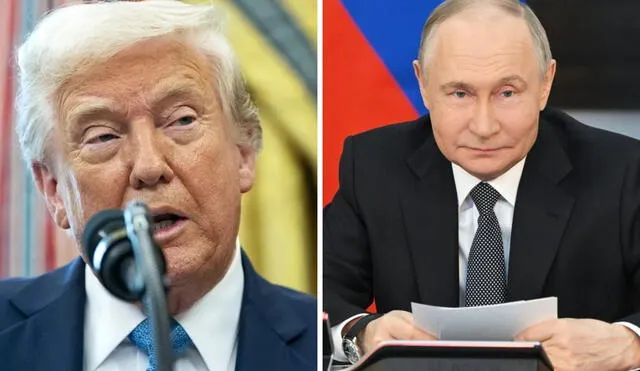Trump criticizes Putin over Kyiv attack amid ceasefire talks
As Trump attempts to broker peace between Ukraine and Russia, his controversial stance on Crimea and NATO is shaking global alliances—sparking fierce debate and setting the stage for a diplomatic showdown with lasting consequences.

In a notable shift from his usual stance, President Donald Trump publicly criticized Russian President Vladimir Putin for a deadly missile and drone strike on Kyiv that killed at least eight people. Trump expressed frustration over the timing of the attack amid ongoing U.S.-led ceasefire negotiations, urging Putin to halt further violence and commit to a peace agreement to end the three-year conflict in Ukraine. This condemnation marks a departure from Trump's typical criticism of Ukrainian President Volodymyr Zelenskyy, signaling a more balanced approach in addressing the conflict.
The Trump administration has proposed a ceasefire plan that includes freezing most territorial boundaries and implicitly accepting Russia’s annexation of Crimea, a condition Ukrainian officials firmly oppose. Trump's remarks also follow increased threats from the administration to abandon ceasefire negotiations if Russia and Ukraine don't come to the table soon. Secretary of State Marco Rubio and special envoy Steve Witkoff canceled a scheduled meeting with European allies to emphasize the urgency of the situation.
Trump pressures Ukraine and Russia on ceasefire deal amid Crimea dispute
Despite his public rebuke of Putin, Trump continued to question Ukraine's past inaction over Crimea, suggesting that Ukraine hadn't tried hard enough to reclaim the territory when it was annexed by Russia in 2014. This dual approach reflects the administration's strategy of pressuring both sides to accept the U.S.-proposed deal. Vice President JD Vance echoed this stance, urging both sides to accept the ceasefire or risk the U.S. exiting the negotiation process.
The proposed ceasefire plan has sparked strong opposition from Ukrainian leaders, who argue that conceding Crimea would set a dangerous precedent and embolden further Russian aggression. They view Trump's aggressive diplomacy as either an unrealistic negotiating tactic or a setup to blame Ukraine for failed talks. Despite Ukraine's current inability to militarily reclaim Crimea, President Zelensky maintains that any territorial resolution must follow a ceasefire and legitimate constitutional processes.
Global leaders react to Trump’s ceasefire push as Crimea and NATO issues divide allies
International reactions to Trump's stance have been mixed. French President Emmanuel Macron and the French Foreign Ministry emphasized Ukraine's sovereignty and accused Russia of obstructing peace efforts. Norway’s Prime Minister Jonas Gahr Støre, visiting Washington, reaffirmed NATO's commitment to Ukraine. Meanwhile, Trump's envoy Steve Witkoff was set for a fourth round of discussions in Moscow, and Defense Secretary Pete Hegseth met with NATO leaders ahead of a summit focused on increasing defense spending.
As the conflict continues, the Trump administration faces challenges in brokering a peace deal that satisfies all parties involved. The proposed terms, particularly regarding Crimea and Ukraine's NATO membership, remain contentious points. The situation highlights the complexities of international diplomacy and the difficulties in resolving long-standing territorial disputes. The coming weeks will be critical in determining whether the U.S.-led negotiations can achieve a lasting ceasefire.













